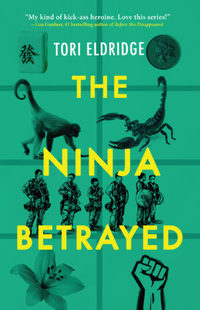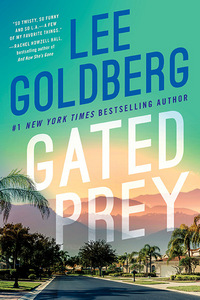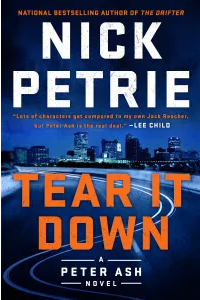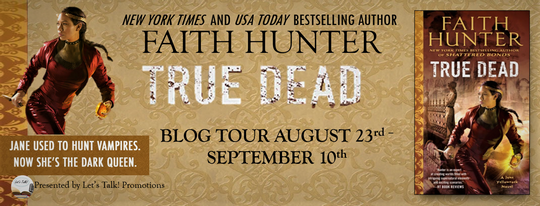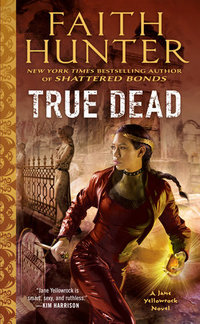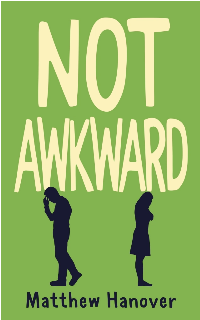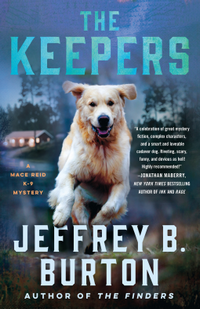I somehow unpublished this last night—so here’s a fresh copy…
Be sure to check out the Q&A with the author
 |
Love & Bullets: Megabomb Editionby Nick Kolakowski eARC, 300 pg. Read: November 8-12, 2021 |

A Little Background
Regular readers of this blog should recognize the name Nick Kolakowski, a couple of years ago I talked about a trilogy of novellas he wrote: A Brutal Bunch of Heartbroken Saps, Slaughterhouse Blues, and Main Bad Guy. Next week, these novellas, along with some additional material to tie them together and add a little something extra, are being published as one novel (you can read a bit about the circumstances behind that in the Q&A we did).
What’s Love & Bullets About?
Bill’s a con artist, a hustler with a hint of tech-savvy (and the sense to employ someone savvier) who has gotten comfortable doing small-time work for the Rockaway Mob. An encounter with a similar grifter delivers a swift, spiritual kick to the head that alters his reality and he decides to get out of the business and retire somewhere far away. After he helps himself to a sizeable amount of money from the Mob.
Unsure of his girlfriend’s intentions or loyalty, he doesn’t tell her or bring her along. This is an understandable move, but also a bad move, because she’s an assassin for the Rockaway Mob and one of the few that is sent after him. Fiona’s in a forgiving mood when she catches up to him (probably helped by the fact that she’s fairly incapacitated at the time and can listen to him). The two of them extricate Bill from some trouble that he stumbled into in Oklahoma on the way to the southern border, take care of a couple of other Rockaway employees, and head to Central America for a quieter life.
Which absolutely doesn’t work for long—they find themselves indebted to another criminal organization and the Rockaway Mob isn’t done with them, either. So we get to travel with them as they narrowly escape death in Nicaragua, slip away from a garotte (or worse) in Havana, and get into a much more hazardous situation or five back in New York.
The Rockaway Mob
Every named character, with one exception, in this book is a criminal (the overwhelming majority of unnamed characters, too). So you really can’t say something about “bad guys”*—it’s protagonists and antagonists, and maybe an ally or two.
* Difficult, but not impossible, the third novella was called Main Bad Guy, after all—although there are a couple of candidates for that title.
The main antagonists for Bill and Fiona are the Rockaway Mob. The Rockaway Mob is a wholly modern take on organized crime. There’s no family history, no tie to an ethnic/national origin overseas, nothing that Scorsese or Coppola would make a movie about. Instead, they’re a conglomeration of shady businessmen (and an academic) who started working together and then turned things up to 11.
A handful of hitmen are brought in by the Rockaway Mob to take care of Bill (and, later, Fiona)—some are more colorful than others (and at least three of them could make great main antagonists in any number of PI/Police Procedural novels). But all of them pale to the academic who finds himself leading the Mob (at least as far as we see), he goes by The Dean.
He’s an annoying, pretentious, fastidious man with the kind of vocabulary that people notice. Nothing about him suggests criminal—of any variety, much less an organized crime head. But when you see him with his temper flaring, when he’s pushed to the limit? Well, there’s a beast under all that civilization…I could easily read more about The Dean at the drop of a hat.
The New Material
Not unlike Boyd Crowder when they decided to turn Justified into a series, someone who was killed in the original story has their fate changed in the new material. Also like Boyd Crowder, keeping them alive and running around made the whole thing a lot more interesting.
It’s a little tricky to describe, without spoiling something for new—or old—readers. But I had a suspicion about who survived—and was very happy when I discovered I was right. I’d really started to enjoy the character when they’d been killed, and getting to see them in action some more was a real treat.
It’s hard to describe the new arc for that character—it’s not really a redemption arc (although it’s adjacent to one). It gets to show them in a slightly different light than we saw originally, but the effects from the events surrounding their initial appearance definitely leave their toll on their psyche, if not their health.
I loved the new material—I wouldn’t have minded a little more, but I didn’t need it to be satisfied. It fit perfectly into this world but was so unlike the original material that it felt even fresher than it was. Definitely worth reading the new edition just for it (but really, the whole thing in one package is justification enough)
Reading the Megabomb Version
It’s been years since I read the original trilogy—January of 2019—so my memory for the details is a little hazy. Sure, most of it came back right away—but I will admit to checking with my hard copies of the originals to see if I’d forgotten something if was new or not a couple of times.
But without the pressure of wondering what was going to happen to Bill and Fiona, I was able to soak in some of the other details that I’d just glanced at before. This was as rewarding as I’d hoped—particularly with the second novella’s material, I didn’t initially rate it as highly as the other parts and I think that was a mistake.
The important thing to take away from the rereading process (at least for me) is that it totally holds up to a re-read.
So, what did I think about Love & Bullets?
I struggled the first time around, and I’m struggling now to capture the feel of this book. When I wrote about, Main Bad Guy, I said, “This is the literary equivalent of a Martin McDonagh film (when he’s in a more playful mood)—or, if that doesn’t work for you, think Fargo meets Tarantino, but not as long-winded.” Which isn’t bad (and I’d forgotten I mentioned McDonagh, which is really apt)—this time I’m going to add that it has a Shane Black, but more violent, feel. Maybe if you average the two comments—and throw in what I said about the first novella “think Edgar Wright action scenes, but more lethal.”
Even as the 300-page Megabomb it is now, this is a fast-moving thrill ride. It’s funny. It has occasional moments of sweetness (very transient). The story and characters are visceral—you can see the action, you can practically hear Bill’s quips and feel Fiona’s patience evaporating at them (while she does love him for them). It will get a much-beloved (or much-disparaged) band’s music stuck in your head during one fight scene. Really, it covers almost all the senses—and given where they spend a lot of time, you’ll be glad it leaves the other two out.
Has Kolakowski written novels/stories that are technically better? Probably. Has he written something with greater entertainment value? Nope. Love & Bullets is just a blast from the opening lines through to the final image. Be sure you don’t miss it.
Disclaimer: I received a copy of the novel from the author in exchange for this post and my honest opinion, and I thank him for that, but it did not affect my opinion of this work.

![]()


